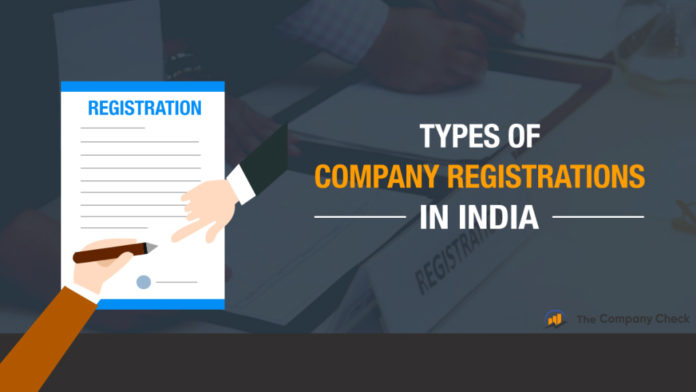Every entrepreneur dreams of success in his business venture. Perhaps the first step towards success is taken when you register your company with Indian official records i.e. the Ministry of Corporate Affairs (MCA). Registering your business ensures that the name of your company is saved and no one else uses it. There are various types of company registrations in India which are done. These differ according to the requirements of the business:
| COMPANY TYPE | SUB-TYPE |
| Public Companies | Public Limited Company (PLC) |
| Government of India Company, Centre (GOI) | |
| Company of State Government (SGC) | |
| General Association Public (GAP) | |
| Public Limited Company with Unlimited Liability (ULL) | |
| Financial Lease Company as Public Limited (FLC) | |
| Private Companies | Private Limited Company (PTC) |
| Government of India Company, Centre (GOI) | |
| General Association Private (GAT) | |
| Private Limited Company with Unlimited Liability (ULT) | |
| Subsidiary of a Foreign Company as Private Limited Company (FTC) | |
| Section 8 Company – Not for Profit (NPL) | |
| Private (One Person Company) | One Person Company (OPC) |
Most commonly we see that businessmen register their companies as either a public limited company, private limited company or a one-person company.
Public Limited Company (PLC)
A Public Limited Company (PLC) is a firm that offers its shares to be traded on the stock exchange for the general public. To maintain transparency a PLC has to compulsorily present its financial stats and position to public.
Private Limited Company
A Private Limited Company is a business entity which is held by a small group of people. The firm is registered for pre-defined objects and owned by a group of members called shareholders. Businesses with a good growth rate choose Private Company as their business structure.
As per Section 2(62) of the Company’s Act 2013, a company can be formed with just 1 Director and 1 member. This is a new addition, as earlier rules stated that a Private Company, a minimum of 2 Directors and Members are required whereas in a Public Company, a minimum of 3 Directors and a minimum of 7 members. A single person could not incorporate a Company previously.
When an entrepreneur starts a business, they should not only be pondering over the revenue model of your company and the area of operation, but also the registration of your business as a separate legal entity.
For more information on company registrations in India, log on to the Company Wizard!



